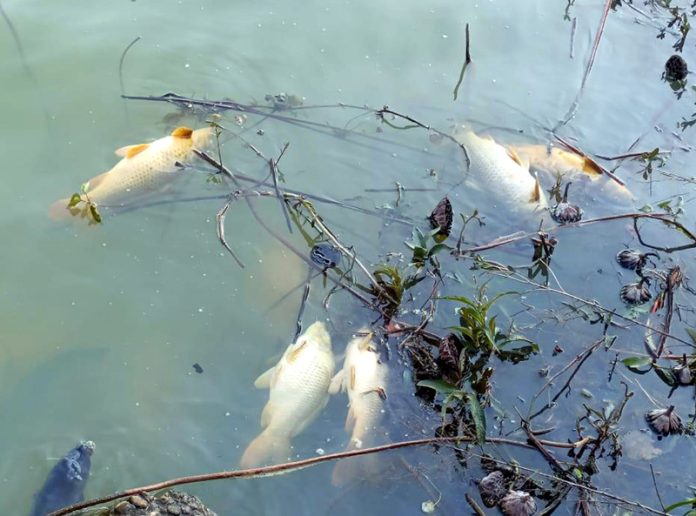Another mass death of thousands of fish in the historic Mansar Lake is not just a local tragedy but a stark reminder of the fragile balance between human activities and ecological systems. This recurring phenomenon, exacerbated this year also, demands immediate and sustained attention from authorities, environmental experts, and the local community. Mansar Lake is not only a vital water resource but also a centre of religious and cultural significance. The lake’s ecosystem supports diverse aquatic life and is a drinking water source for the surrounding areas. However, the continuous death of fish has sparked concerns about water contamination and the potential spread of waterborne diseases, threatening both public health and the lake’s ecological balance.
Last year, an investigation conducted by the Fisheries Department of Sher-e-Kashmir Agricultural Science University identified oxygen depletion as the primary cause of fish deaths in the lake. Factors such as overpopulation of fish, excessive feeding with flour by visitors, and organic waste accumulation were cited as key contributors. The decomposition of uneaten flour and fish waste produces ammonia, a toxic substance that further depletes oxygen levels, rendering the water uninhabitable for aquatic life. Adding to this is the issue of pollution. Despite efforts by the Wildlife Conservation Department to curb the discharge of household wastewater into the lake, some residents continue to violate these guidelines. This negligence not only deteriorates water quality but also undermines efforts to maintain the lake’s ecological integrity.
Mansar Lake holds immense religious significance, with beliefs discouraging the removal of fish or other aquatic life. While this cultural reverence has historically protected the lake’s biodiversity, it now presents a challenge. The unchecked growth of fish populations and the reluctance to manage them have led to severe ecological imbalances. Balancing cultural beliefs with the lake’s ecological needs is a delicate but necessary endeavour.
The current situation demands urgent intervention. Authorities must prioritise the removal of dead fish to prevent further contamination of the water. Simultaneously, comprehensive measures must be implemented to address the underlying causes of fish mortality. Installing additional fountains or aeration systems can significantly enhance oxygen levels in the water. This step is particularly crucial during winter when oxygen depletion is most severe. Controlled relocation of fish to other water bodies or fish farms can reduce overcrowding. This solution respects the religious beliefs of the community while addressing the ecological imbalance. Strict enforcement of regulations against dumping household wastewater into the lake is essential. Simultaneously, local authorities should expedite the implementation of alternative waste management solutions for residents. Sustained awareness campaigns must educate locals and tourists about the harmful effects of overfeeding fish and polluting the lake. Religious and cultural leaders can play a pivotal role in fostering environmentally responsible practices that align with traditional beliefs. Environmental experts regular monitoring of water quality and fish health is critical. Predictive modelling can help anticipate and mitigate future occurrences of fish mortality.
Preserving Mansar Lake requires a practical approach integrating environmental science, community participation, and cultural sensitivity. The Government must allocate adequate resources for the lake’s conservation, including funding for scientific research and the implementation of sustainable management practices. Collaboration with NGOs, academic institutions, and religious organisations can further enhance these efforts.
The tragedy unfolding in Mansar Lake is a wake-up call. Without decisive action, the lake’s ecological and cultural value may be irreparably damaged. The situation underscores the need for a balanced approach that respects local traditions while prioritising environmental sustainability and public health. Mansar Lake is not just a body of water; it is a living symbol of the region’s heritage and biodiversity. Saving it should be a top priority. Timely action is the need of the hour to ensure that future generations inherit a lake that is as vibrant and life-sustaining as it has been for centuries.
Trending Now
E-Paper


